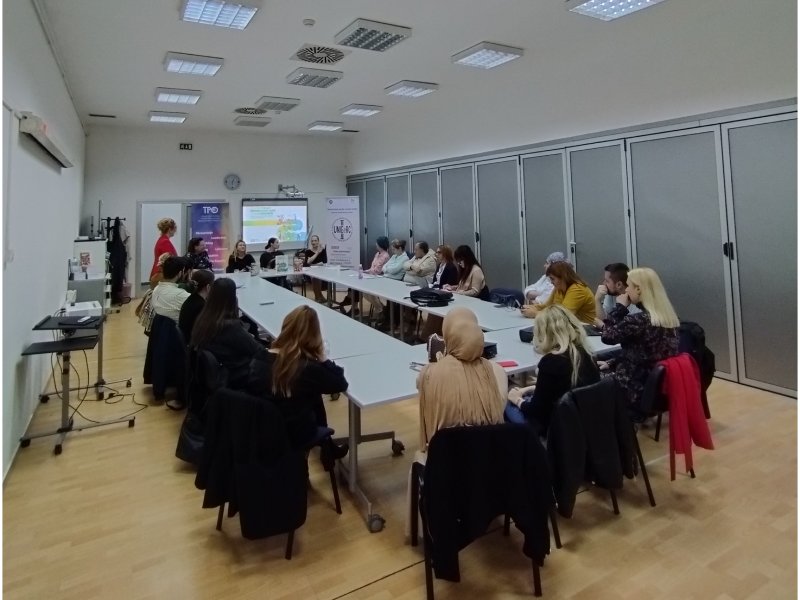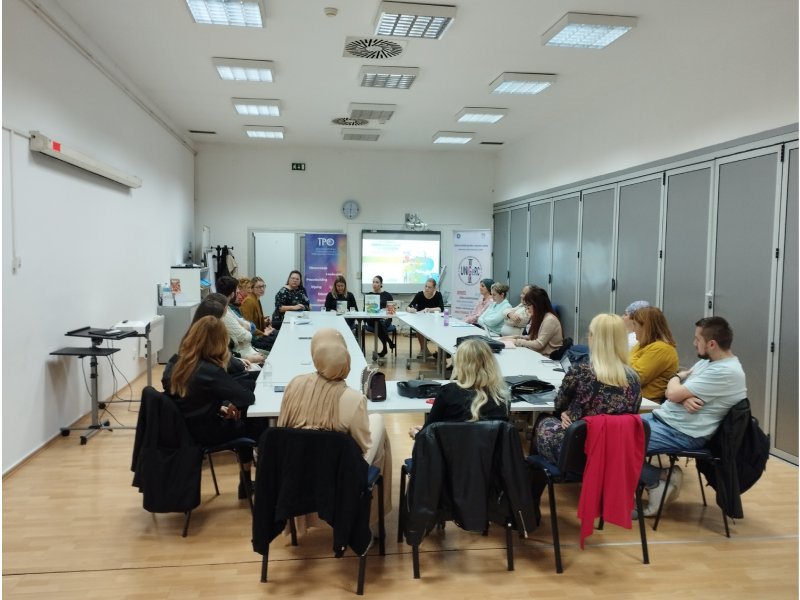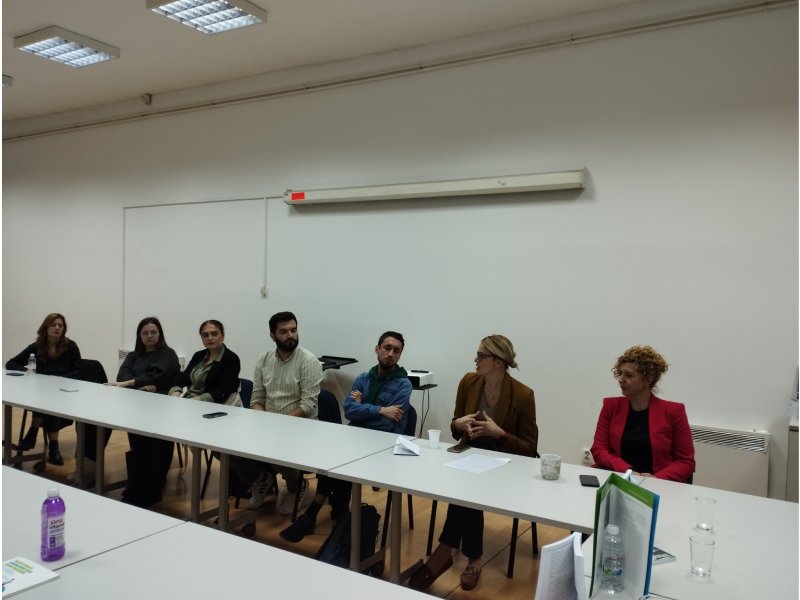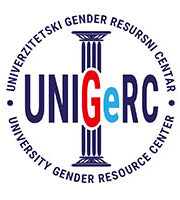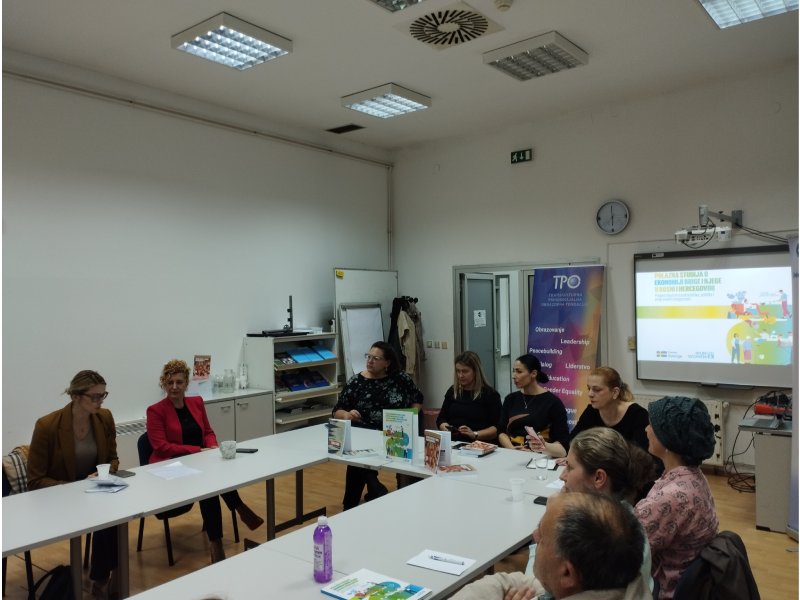On Monday, October 30, 2023, in the Center for Interdisciplinary Studies of the University of Sarajevo, within the scope of the University and Gender Mainstreaming (UNIGEM) project, a promotion of the editions on the economy of care and a panel discussion was held.
On this occasion, these books were promoted: ‘Initial Study on the Economy of Care’, ‘Feminism and Religion in the 21st Century’ and ‘Ethics of Care in the Age of Precarity’.
The promoters were professors Dr. Jasna Kovačević, Dr. Maja Arslanagić Kalajdžić and Dr. Melika Husić Mehmedović, and the moderator was Kristina Ljevak.
The initial study on the economy of care in Bosnia and Herzegovina (Overview of key characteristics, policies and program options) ‘focuses on the economy of care in Bosnia and Herzegovina and provides an overview of available key characteristics, policies and program options. The goal is to build an understanding of the disproportionate distribution of responsibility for care and nursing as a source of inequality, with a focus on sex/gender, and thereby help initiate positive changes that will lead to a fairer distribution of care and nursing in households and communities and thus contribute to the empowerment of women. The aim is to produce evidence for strategies and interventions using the ‘3R approach’, which helps to identify, reduce and redistribute existing unpaid care work within the household, community (civil society), market (private sector) and authorities (by improving the legal and institutional infrastructure).’
Feminism and Religion in the 21st Century brings sixteen essays and a large number of different topics. ‘Various authors write about the transformational effects of communication technologies, the Internet, blogs and social media, such as Twitter and Facebook, in the communities of women and men involved in religion and feminism. Women are extremely involved in the digital world as they dominate blogs and represent the majority of total social media users. These media break down borders, communicate globally and across numerous divides, and allow women to deal with different issues based on their own experience.’ So it can be said that the essays presented in this Collection encourage us to see ‘the transformative possibilities that, thanks to social media technology, have been provided to people, especially women.’
Care ethics in the age of precarity reproduction explains that ‘precarity’ is a tricky term, because it names a threat that is real and omnipresent and consists of many elements crucial to the individual being. Judith Butler describes precarity as ‘a politically induced condition in which certain populations suffer from failing social and economic support networks and become differentially exposed to injury, violence and death’ (2010, 25). Moreover, in his introduction to State of Insecurity: Government of the Precarious, Butler makes it clear in her agreement with the book’s author, Isabell Lorey, that this pervasive condition is a long-term thing: ‘Precarity is not a transitory or episodic condition, but a new form of regulation that distinguishes this historical time.’ Precarity ‘has itself become a regime, a hegemonic way in which we are governed and govern ourselves’ (Lorey 2015, vii). In one sense of this term, every life is predicated because, by definition, the concept of life is juxtaposed with death. To have life means to exist with the ever-present possibility of death, as well as to have constant conditions for survival. (…)
The books ‘Feminism and Religion in the 21st Century’ and ‘Care ethics in the age of precarity reproduction’ are available via the link http://www.tpo.ba/b/Publikacije.html, and ‘The initial study on the economy of care in Bosnia and Herzegovina” via the link
https://eca.unwomen.org/sites/default/files/2023-05/20230522_Care%20Economy_Study_BHS.pdf

